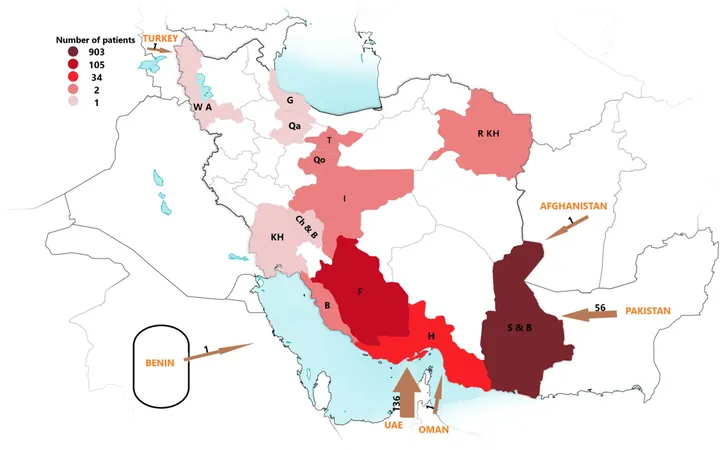
Unlocking the Neanderthal Legacy: How a Hidden Gene Variant Impacts Modern Muscles
2025-08-12
Author: Li
Neanderthal DNA: A Surprising Influence on Modern Human Physiology
Imagine if a tiny piece of ancient history was lurking in your DNA, impacting your muscle performance today. Recent research has uncovered a fascinating genetic variant inherited from Neanderthals that directly affects the activity of a crucial muscle enzyme, AMPD1. This variant, present in every sequenced Neanderthal and absent in other species, not only shapes our genetic landscape but also hints at the challenges of physical endurance.
What the Study Reveals: Decreased Enzymatic Activity in Modern Humans
A breakthrough study from the Max Planck Institute for Evolutionary Anthropology reveals that this Neanderthal AMPD1 variant significantly reduces enzymatic activity—by 25% in lab-produced proteins, and astonishingly, up to 80% in the muscles of specially engineered mice. This genetic remnant traces back to an interbreeding event approximately 50,000 years ago, resulting in about 8% of today's Europeans carrying this inherited trait.
The Role of AMPD1: Critical for Muscle Function and Athletic Performance
The enzyme AMPD1 is essential for muscle energy production. A major loss of its activity can lead to metabolic myopathy, a common muscle disorder affecting 9-14% of Europeans. According to Dr. Dominik Macak, who led the study, "Strikingly, most individuals carrying the variant are generally healthy and do not face significant issues," but the consequences for athletic performance can be profound.
How This Variant Affects Athletes: A Genetic Disadvantage?
In a striking analysis of over a thousand elite athletes, researchers found that those with a non-functional AMPD1 variant were significantly less likely to excel as top athletes, with their chances of reaching peak performance cut in half. This highlights a crucial connection between our ancient DNA and modern athletic capabilities.
The Evolution of Athleticism: Neanderthals to Now
While AMPD1’s impact on muscles may seem minor in everyday life, it takes on greater significance during extreme physical exertion, like that faced by elite athletes. Dr. Hugo Zeberg stresses the importance of understanding these ancient gene variants in the context of both evolutionary biology and modern physiology, suggesting that both cultural shifts and technological advances may have reduced the necessity for extreme muscle performance.
Conclusion: The Future of Genetic Research and Athletic Performance
Researchers urge continued exploration into how our genetic inheritance from Neanderthals influences health, exercise, and performance today. Understanding this ancient legacy might not only illuminate the past but could also lead to innovations in training and health strategies for future generations.
This groundbreaking research was published on July 10, 2025, in the journal *Nature Communications*, paving the way for future studies that could unravel even more secrets locked within our DNA.


 Brasil (PT)
Brasil (PT)
 Canada (EN)
Canada (EN)
 Chile (ES)
Chile (ES)
 Česko (CS)
Česko (CS)
 대한민국 (KO)
대한민국 (KO)
 España (ES)
España (ES)
 France (FR)
France (FR)
 Hong Kong (EN)
Hong Kong (EN)
 Italia (IT)
Italia (IT)
 日本 (JA)
日本 (JA)
 Magyarország (HU)
Magyarország (HU)
 Norge (NO)
Norge (NO)
 Polska (PL)
Polska (PL)
 Schweiz (DE)
Schweiz (DE)
 Singapore (EN)
Singapore (EN)
 Sverige (SV)
Sverige (SV)
 Suomi (FI)
Suomi (FI)
 Türkiye (TR)
Türkiye (TR)
 الإمارات العربية المتحدة (AR)
الإمارات العربية المتحدة (AR)